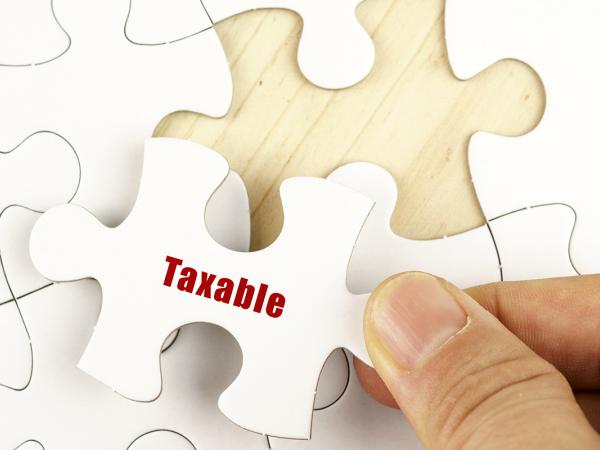Taxable employment income
This page deals only with income that you get from an employer – employment income. We look at whether the different parts of your employment package are taxable. Income does not have to be in monetary form, such as physical cash or bank payment – it can be payment-in-kind.

Content on this page:
Introduction
You do not have to pay tax on all your income. In tax terms, some income is taxable – you must pay tax on it, and some is non-taxable, not taxable, exempt, or tax-free – you do not have to pay tax on it.
If you want to know whether different types of income are taxable or not, visit our pages on taxable income and tax-free income in the Tax and NIC section. If you want to know whether different state benefits and tax credits are taxable or not, visit our section on Benefits.
This page is for you if you are an employee with a UK employment and you are UK resident and domiciled for tax purposes. If this is not the case, the rules may be different and you may need to seek advice from a tax adviser. We tell you how you can find a tax adviser on our page covering help with tax from friends, family, professionals, or other organisations.
Taxable employment income
The following list includes some of the main types of employment income that are normally taxable.
- Wages and salaries, including any advances, pay paid while you were furloughed and holiday pay. It does not matter how your employer pays you. You can read more about this on our page on getting paid.
- Certain benefits-in-kind, which might also be called ‘perks’ of your job. This includes things like company cars and private medical insurance.
- Bonuses, commission – if your employer pays you a bonus or commission, you must pay tax on it. Usually, your employer operates PAYE, just like on your wages or salary.
- Tips - the way in which you work out your tax/NIC on tips depends on who the tips are given to and who decides how to share the tips. See our separate guidance on tips for more information.
- Backdated pay awards – although the rules can be complex (see ‘Tax on backdated pay’ below for more information).
- Expenses not wholly, exclusively, and necessarily incurred to do the job, and that are paid or reimbursed by your employer, including:
- Travelling expenses between your home and permanent place of employment
- Expenses incurred for the care of a member of your family, such as child minding costs
- Other ‘private’ expenses
- Vouchers that can be exchanged for cash, goods, or services, for example gift vouchers.
- Income from a second or third job.
- Some share awards and share option gains.
- Payment in lieu of remuneration, such as a payment made by a liquidator when a company has been wound up and employees are owed earnings.
- Protective awards which may be ordered by an Employment Tribunal if an employer has not given a trade union the statutory notice of redundancies.
- Redundancy/leaving payments over £30,000 and from April 2018, all payments in lieu of notice. Note there are slightly different rules for redundancy payments made to members of the armed forces.
- Retainers – a retainer is a payment made for a period when no actual work is carried out, such as payment made to employees of the school meals service during school holidays.
- Most round sum allowances – that is, an allowance which is paid to you irrespective of how you spend it. However, tax relief may be available to an employee if any of the round sum allowance is spent on qualifying expenses.
- Statutory payments, such as statutory sick pay, statutory maternity pay, and statutory paternity pay.
Tax-free employment income
The following list includes some of the main types of employment income that are normally tax-free.
- Redundancy payments or compensation for loss of employment up to £30,000, subject to certain rules. This is a complex area. You can find more information on our redundancy page. Note that any payments made instead of paying you for your notice period are liable to income tax.
- Certain benefits-in-kind, including trivial benefits and employer contributions into an approved pension, subject to certain limits.
- Employer sponsored courses
- Long service awards where the gift meets certain criteria – the gift must be a non-cash award; the award must mark at least 20 years of service by the employee; the employer must not have made another long-service award to the same employee within the previous 10 years; the award must be worth no more than £50 per year of service.
- Payment or reimbursement of expenses, wholly, exclusively, and necessarily for your employment.
Tax on backdated pay
Employees are generally taxed on their earnings at the date of receipt.
For monetary payments, this means the earlier of:
- Rule 1 – the date that the payment is physically made; or
- Rule 2 – the date the employee becomes legally entitled to the payment.
In this context, the taxation of backpay can be quite confusing – it depends on why the arrears have arisen.
If there was no legal obligation for your employer to give you the pay rise in the first place, the amount would be fully taxable in the year you receive it, rather than in any earlier tax year.
On the other hand, if the backpay has arisen because there has been a breach of employment law (for example, the holiday pay rules, minimum wage rules, or equal pay rules) then HMRC guidance confirms that the tax is due on the arrears in the year of entitlement not the year of payment. In this case, you may have to ask your employer to tax it in the various relevant tax years.
Working overseas in the armed forces
Most service personnel working abroad will continue to pay income tax and National Insurance contributions in the UK as normal on their armed forces pay. The only exception may be if you:
- were recruited overseas, and
- are not resident in the UK, and
- the maximum rate of pay for your grade is less than that of an executive officer in the UK civil service working in inner London.
If you are a member or officer of the Royal Gurkhas, this exception does not apply to you and you will remain liable to tax in the UK on your armed forces pay.
A word of caution
If your employment package contains types of income that we do not cover, for example, 'non-taxable' investment payments, grants, loans, credits and so on then you should be very wary.
Some non-compliant umbrella companies pay people using non-taxable payments, often routed through a third party like a trust. But if payments are routed through a third party like this, they are very likely to fall foul of the very substantial suite of anti-avoidance legislation that we have, called the disguised remuneration rules. You can read more about this on our page about disguised remuneration.
Further information
You can find out where to get help with your taxes from the tax charities or a paid tax adviser, in our getting help with tax pages.
You can find an A-to-Z list of typical employment income elements and benefits and the treatment on GOV.UK. Although this is aimed at employers, it will be useful more widely.
For technical information, see HMRC’s Employment Income manual which provides detailed guidance on the tax treatment of particular items of employment income and benefits.



